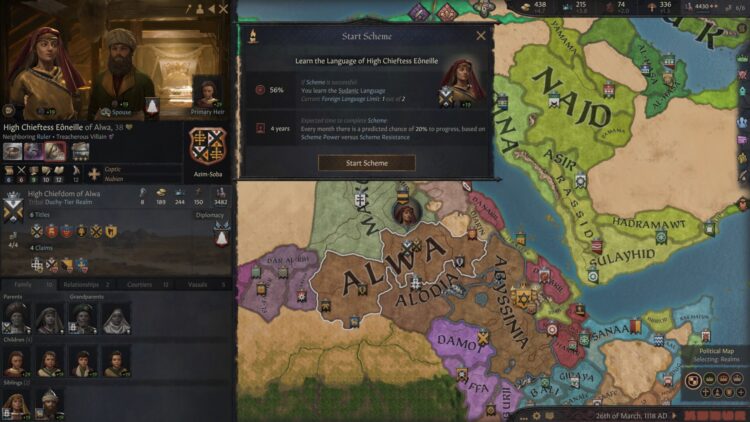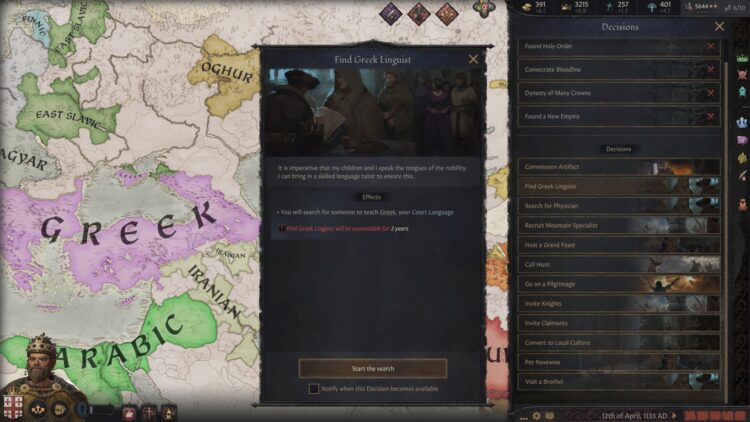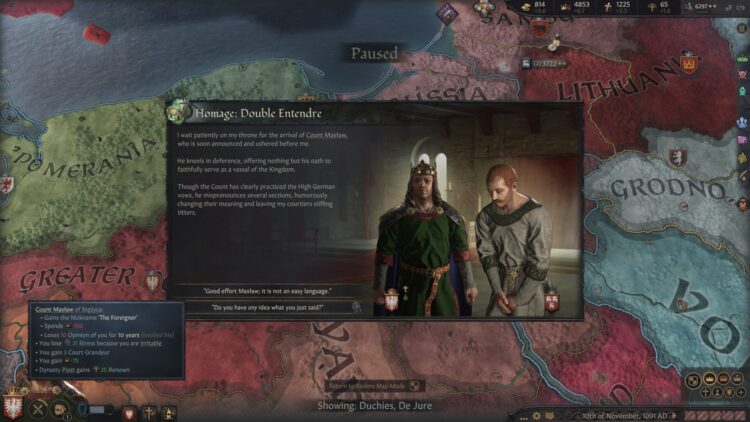Every character in Crusader Kings III: Royal Court has a particular language. However, your character isn’t just limited to a single dialect, and you’d be able to turn them into a polyglot. Here’s our Crusader Kings III: Royal Court guide to help you learn new languages.
Note: For more information, check out our Crusader Kings III guides and features hub as well as our beginner’s guide/the things to do before you unpause.
Crusader Kings III: Royal Court guide – How to learn new languages
There are a few ways to learn a language in your Crusader Kings III: Royal Court campaign. You can just right-click on a character’s portrait and select the Learn Language option. This will then lead to a personal scheme with an event chain that can succeed or fail in the next few years.
Another option is also available to those who’ve already unlocked Royal Courts (i.e., those with kingdom or empire-level titles). Go switch to the Court Languages map mode to check what’s active in nearby territories. If your ruler doesn’t know the Court Language, they can hire a linguist via a decision.
In the example you see below, Georgia has Greek as a Royal Court language. Unfortunately, the king doesn’t know how to speak Greek, which means he can hire someone to help him along. The appointed character is given the Court Tutor position, which grants bonuses to the Learn Language scheme’s power (though you still need to right-click on someone so you can study that language).
Note: Those with a Court Tutor assigned can right-click on children in their domain to have them study a new language. This assists with their development, especially if you’re rearing them to lead a nation in the future.
When you learn a language in Crusader Kings III: Royal Court, you gain an opinion bonus from those who speak that language. This can help when it comes to diplomatic and personal proposals.
Likewise, it’s helpful if you know how the right words to say due to random events. There are those where you’d meet new characters or when vassals pay homage to a ruler. If the characters don’t understand each other, it could lead to a bit of a misunderstanding. For instance, vassals might be given a silly nickname (i.e., The Foreigner) if they make a fool of themselves.
Crusader Kings III: Royal Court is available via Steam. For more information, check out our guides and features hub.
Crusader Kings III: Royal Court — How to learn new languages
Source: Philippines Poverty



0 Comments